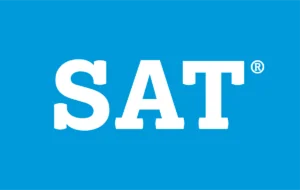The Educational Testing Service (ETS), administrator of the Graduate Record Exam (GRE), is set to almost halve its testing time to less than two hours, according to an announcement from PoetsandQuants. This decision came in response to the Graduate Management Admission Council’s (GMAC) move to shorten the GMAT exam.

✅ AI Essay Writer ✅ AI Detector ✅ Plagchecker ✅ Paraphraser
✅ Summarizer ✅ Citation Generator
Key Takeaways
- The new GRE exam is not only shorter but will also be available to test takers earlier than the new GMAT. Registration is already open, with the exam set to be available on September 22nd, well ahead of the GMAT’s availability in the fourth quarter.
- Both GRE and GMAT are reducing the length of their exams in an effort to minimize friction for applicants. However, the impacts of these changes on the accuracy of assessing a student’s ability are unclear.
- Despite the change, GRE will continue to test writing while GMAT has eliminated its writing section. This could influence schools’ preference for one test over the other, given current concerns over the validity of essay questions due to artificial intelligence platforms.
The Battle of Test Duration: GRE vs GMAT
GRE has raised the stakes in the race to streamline the testing process for business school admissions. By cutting the time needed to take its test to less than two hours, it has successfully outpaced GMAT’s efforts to do the same. The GRE’s new duration, an hour and 58 minutes, is 17 minutes shorter than the revised GMAT length of two hours and 15 minutes. The current versions of GRE and GMAT require three hours and 45 minutes and three hours and seven minutes, respectively.
While these changes promise efficiency, they have also introduced uncertainty for business school admissions departments. The validity of these new, shorter exams in relation to a student’s ability to succeed in their core curriculum is yet to be seen. Schools now face the challenge of determining when to start accepting the new versions of the exams.
Major Differences: Writing and Data Analysis
One crucial distinction between the two new exam formats could be a game-changer. Despite reducing its essay requirement to one, GRE continues to test writing, while GMAT has eliminated its writing requirements. This might sway admissions officials towards GRE, especially amidst increasing concerns about the authenticity of essay responses.
On the flip side, GMAT’s new Data Insights section could appeal to schools and employers alike, given the growing importance of data analysis in decision-making.
Innovations: Shorter Test, Faster Results
The time reductions by both GMAC and ETS are designed to ease the application process for graduate business programs. This is in response to an increasing number of business schools becoming test-optional or generously waiving standardized tests for applicants. ETS has also promised faster delivery of official scores, further enhancing the convenience for test takers.
New Resources for Test Preparation
ETS is set to release new test prep resources for the shortened test in September. However, due to the same question types, existing GRE prep materials will continue to be useful. This move is expected to intensify the rivalry between GRE and GMAT as both tests vie for acceptance among business school applicants.
This announcement from ETS reflects a shift in the landscape of standardized testing for business school admissions. It remains to be seen how these changes will impact the application and admissions processes, and which of the two tests – GRE or GMAT – will emerge as the more preferred choice among students and business schools alike.
Ten Essential Tips for Any Test Day Success
As the revised GRE and GMAT exams approach, it’s crucial for students to be well-prepared to tackle the test efficiently and effectively. The following tips can serve as a guide for achieving success on the big day:
- Study Smart, Not Just Hard: Focus on your weak areas and understand the test format. Practice with GRE-specific materials to get used to the types of questions that will be asked.
- Take Practice Tests: Taking full-length practice tests can help familiarize you with the timing and flow of the actual exam.
- Rest Well the Night Before: A good night’s sleep is crucial for optimum performance. Make sure you are well-rested and ready to tackle the exam.
- Eat a Healthy Breakfast: On the morning of the test, fuel your body with a nutritious meal to keep your energy levels high throughout the exam.
- Arrive Early: Getting to the test center early can help ease any anxiety and allow time for last-minute preparations.
- Remember Your ID: Your identification is crucial for entry into the test center, so make sure you bring it along.
- Stay Hydrated and Snack Smart: Remember to keep a water bottle at hand and opt for snacks that provide a steady release of energy.
- Read Questions Thoroughly: It’s important to read each question carefully to avoid misunderstandings and mistakes.
- Time Management: Keep track of the time to ensure you are answering questions at a good pace without rushing.
- Stay Positive: Maintaining a positive mindset can help you stay calm and focused, increasing your chances of success.
Implementing these tips can not only improve your test performance but can also reduce stress, making your GRE test experience a smoother, more successful one.
Related articles:
Exposed: How AI Is Transforming Cheating and Why Oral Exams Could Be the Ultimate Solution
Exam Room Dilemma: Exploring Teachers’ Opinions on Assistance During Tests and Quizzes
GRE Tripled Its Share in B-School Market Since 2017, Threatening GMAT’s Dominance
Follow us on Reddit for more insights and updates.






Comments (0)
Welcome to A*Help comments!
We’re all about debate and discussion at A*Help.
We value the diverse opinions of users, so you may find points of view that you don’t agree with. And that’s cool. However, there are certain things we’re not OK with: attempts to manipulate our data in any way, for example, or the posting of discriminative, offensive, hateful, or disparaging material.